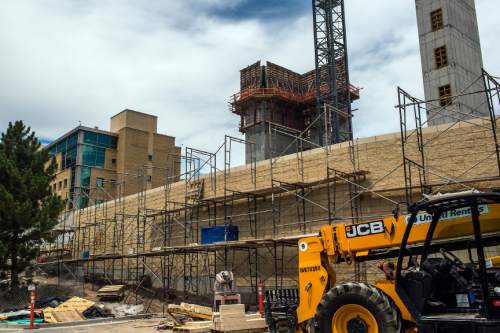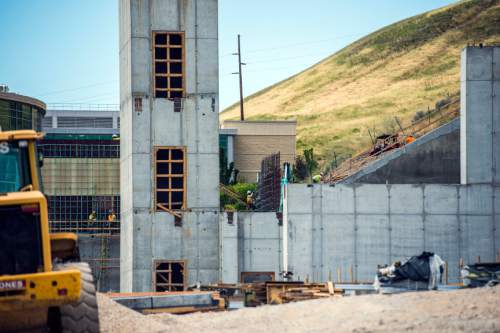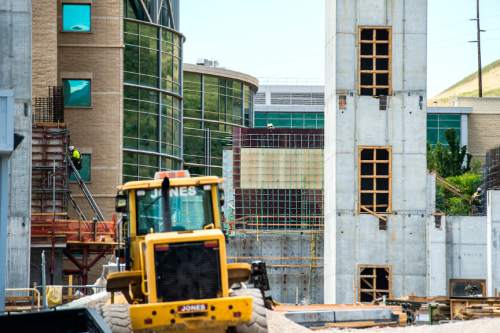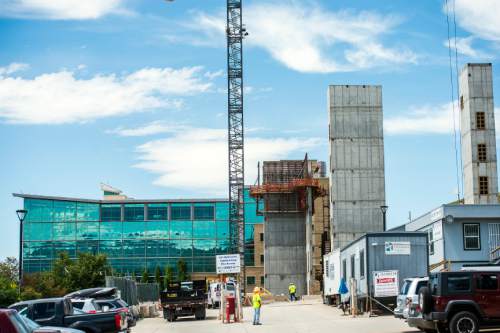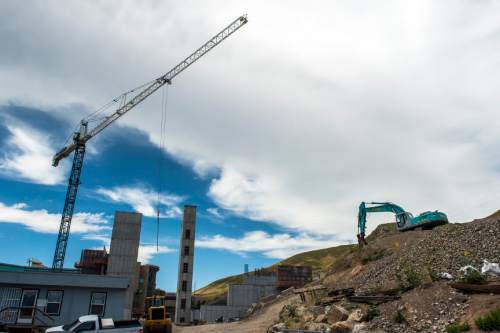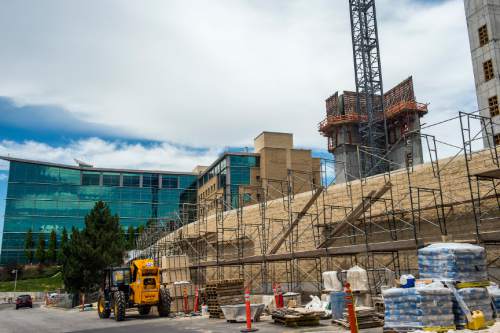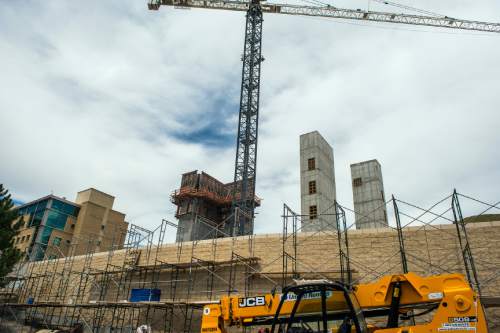This is an archived article that was published on sltrib.com in 2015, and information in the article may be outdated. It is provided only for personal research purposes and may not be reprinted.
Utah's state building agency is not following its own rules about how to ensure that construction contractors perform drug a nd alcohol tests and provide required health insurance for workers, a new audit says.
So the Division of Facilities Construction and Management (DFCM) now plans to change those rules to make compliance easier — an option in recommendations made by the legislative auditor general's office.
That came as DFCM received a generally positive review of its operations, including a finding that it is adequately ensuring that contractors do not hire undocumented immigrants. However, auditors heard complaints — but found no proof — that some workers on state projects face unsafe conditions or are paid in ways to avoid taxes.
"We like this audit, as audits go," said DFCM Interim Director Bruce Whittington.
But auditors found that contractors on state projects "are not submitting mandatory drug and alcohol information … nor has DFCM collected this information."
Whittington said state law mandates his agency require contractors to conduct drug and alcohol testing for employees in safety-sensitive positions. He said it merely requires that to happen through a stipulation in contracts.
"We went above and beyond what state statute required," Whittington said, by adopting a rule "that we verify and follow up on a regular basis. And that's what hasn't been taking place. So we will probably end up amending our rule back to match state statute."
Auditors said they contacted six other states and found that none of them require the additional follow-up now mandated by DFCM rules.
So they recommend that DFCM determine whether collecting such information is valuable and necessary. If it is not, it recommends revoking the requirement — which Whittington said is likely.
Meanwhile, the audit said state law requires that all contractors submit information showing they are providing health insurance to their employees that meets state guidelines, but "DFCM does not collect this information."
It recommended that DFCM begin to collect such certification. "We'll make a separate form and a separate process and deal with that," Whittington said. "We have no issues with their recommendations."
The audit said DFCM is adequately ensuring that contractors prove to the state that they use the federal E-Verify immigration and citizenship verification system to prevent hiring undocumented immigrants.
In fact, auditors said DFCM's approach to ensure that contractors use E-Verify "exceeds what some other Utah agencies are doing." Since E-Verify use is required by state law, some agencies do not separately require it by contract. Others allow use of state driver licenses in lieu of E-Verify — which auditors said is legal.
During the review, auditors said they heard allegations of poor site safety and workers being paid under the table with cash to avoid taxes.
They said they found no safety violations in inspections by the Occupational Safety and Health Administration, and said DFCM had never received any complaints about cash payments.
Auditors said they discussed concerns they heard with the Utah Labor Commission, and said any future complaints should be referred to the commission as the proper investigative authority.


